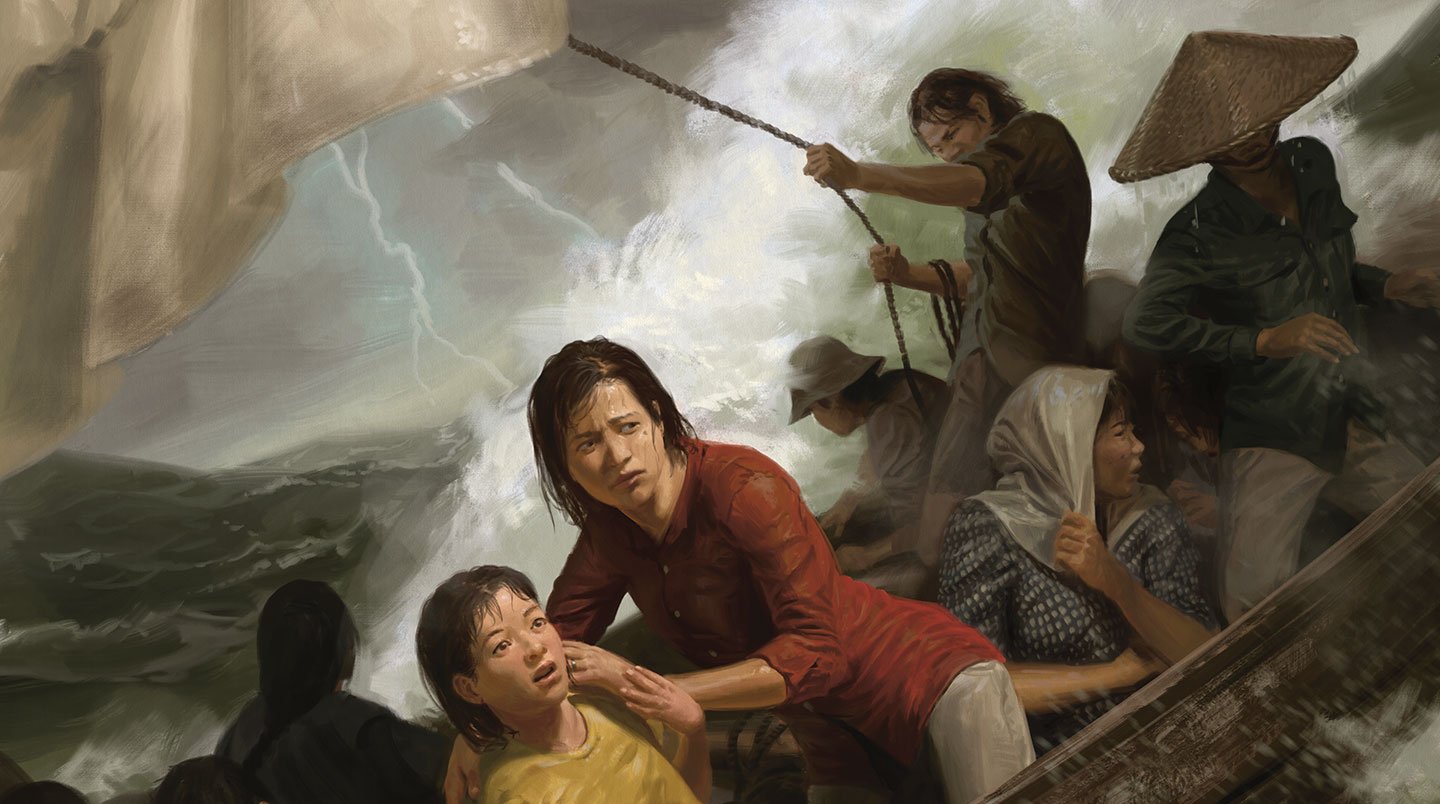HVN: We were on the boat for six days. On the second night, a storm washed over us and soaked most of the food. The fishing net became wrapped around the engine and broke it.
With one week’s worth of food supplies—rice, brown sugar, and other dried foods—now spoiled with seawater and the engine broken, we found ourselves stranded.
The people on board the boat were divided about what to do next. Some of the men did not want to die at sea, so they demanded that the captain turn the boat around. They knew they would be imprisoned if caught trying to escape but were prepared for that. But others on the boat, who had spent years in re-education camps, swore that they would rather die at sea than face such an atrocity again.
A sail was set up [to catch the wind and keep the boat moving], and we all started praying. Water was rationed, and our daily food intake was just a bowl of plain white rice.
Around the third day, the captain’s sister volunteered to jump into the sea to attract some fish. I remember watching her treading in beautiful clear water, surrounded by baby sharks. The men cast a net and caught some of the sharks. The women cooked them in a delicious caramelized sauce.
Many merchant ships passed us by. Every time a ship came into view, the men waved their white shirts, calling for help, and the women and children cried out until they were exhausted. This went on for days—until the sixth day, when the captain of an American oil ship rescued us.

